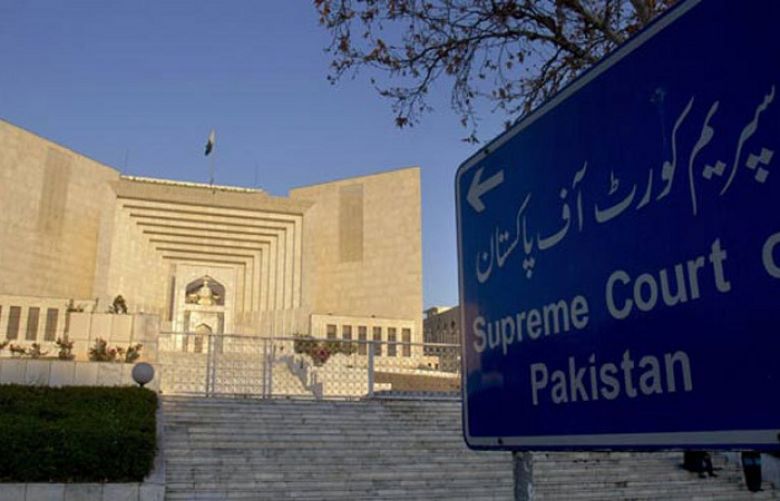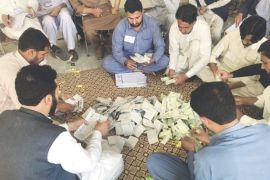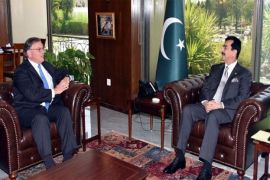The documents provided by the Joint Investigation Team (JIT) looking into the Sharif family's businesses show that Nawaz Sharif did receive salary as the chairman of Capital FZE, said the Supreme Court judges on Thursday while hearing the review petitions against the Panama verdict.
The five-judge bench that decided upon the Panama case, headed by Justice Asif Saeed Khosa, continued hearing the review petitions filed by former prime minister Nawaz Sharif, his children and Finance Minister Ishaq Dar against the July 28 judgement. The bench also comprises justices Gulzar Ahmed, Ejaz Afzal, Azmat Saeed and Ijazul Ahsan.
Justice Ejaz Afzal said that the employment agreement stated that a salary of 10,000 dirhams had been set for Sharif.
"The JIT documents tell us that Sharif had an account to receive the salary," said Justice Ahsan, adding that according to the findings, [Sharif's] first salary was drawn on August 01, 2013.
Senior counsel Khawaja Haris, representing Nawaz Sharif, said that although his client was not backtracking from the employment agreement, he did not have a bank account for the purpose.
"The question is, how can the court accept verbally that Nawaz Sharif did not receive the salary?" questioned Justice Afzal, adding that a statement could not be accepted without scrutiny under the law of evidence.
Not every salary constitutes is an asset, Haris argued, adding that a salary is either in cash or deposited into bank.
"If a person eats a burger from an amount of money, the asset would belong to the burger-seller," Justice Saeed observed.
The counsel said he had been unable to find any precedents in which the court had applied Article 62(1)(f) to disqualify a public representative for not disclosing assets. The consitution does not specify the life-time limit of disqualification under Article 62, he claimed.
"Sharif did not merit disqualification only on the basis that although he had not withdrawn salary [from Capital FZE], it still consituted an asset [due to being a receivable]," he said.
The counsel contended that references could not be filed against the Sharif family on the basis of the JIT report, which he said was "incomplete".
"We did not issue the verdict in light of the JIT report," Justice Afzal responded, adding that court does not accept the report as credible evidence. He said the petitioners have the full right of defence in the accountability court.
The SC verdict of July 28 would not become a hindrance if some new revelation came on record during the trial, observed Justice Afzal.
Justice Asif Saeed Khosa meanwhile observed that the apex court had in the past provided relief to Nawaz Sharif over violation of fundamental rights.
"Do not give the impression that the Supreme Court has become a complainant [against Sharif]," he said.
"Whenever cases were instituted against Sharif in violation of legal provisions, it was this Supreme Court that saved him."
'Disqualified for life?'
During Wednesday's hearing, the heated debate on whether disqualification under Article 62(1)(f) of the Constitution is for lifebriefly surfaced in the apex court.
The issue cropped up when Justice Afzal asked Haris to cite a precedent for permanent disqualification, when such a decision was handed down under Article 62(1)(f).
“Article 62(1)(f) is a new insertion in the Constitution, with its own implications and connotations that have far-reaching effects,” Justice Afzal had said, expressing the desire to hear out the counsel.
The issue came up when Haris asked why the apex court had handed down a lasting disqualification against his client in the Panama Papers case for merely receiving a salary as the chairman of Capital FZE, bypassing a fair trial without giving him the benefit of an appeal. This was done even though the petitioners never highlighted Capital FZE in their petition, he had said.
The counsel had also questioned the competence of all five judges to announce the final order of the court on July 28, when two were not part of the JIT implementation bench. However, Justice Khosa explained that the conclusion of the five judges on the question of Nawaz Sharif’s disqualification was the same, though their reasons were different.







